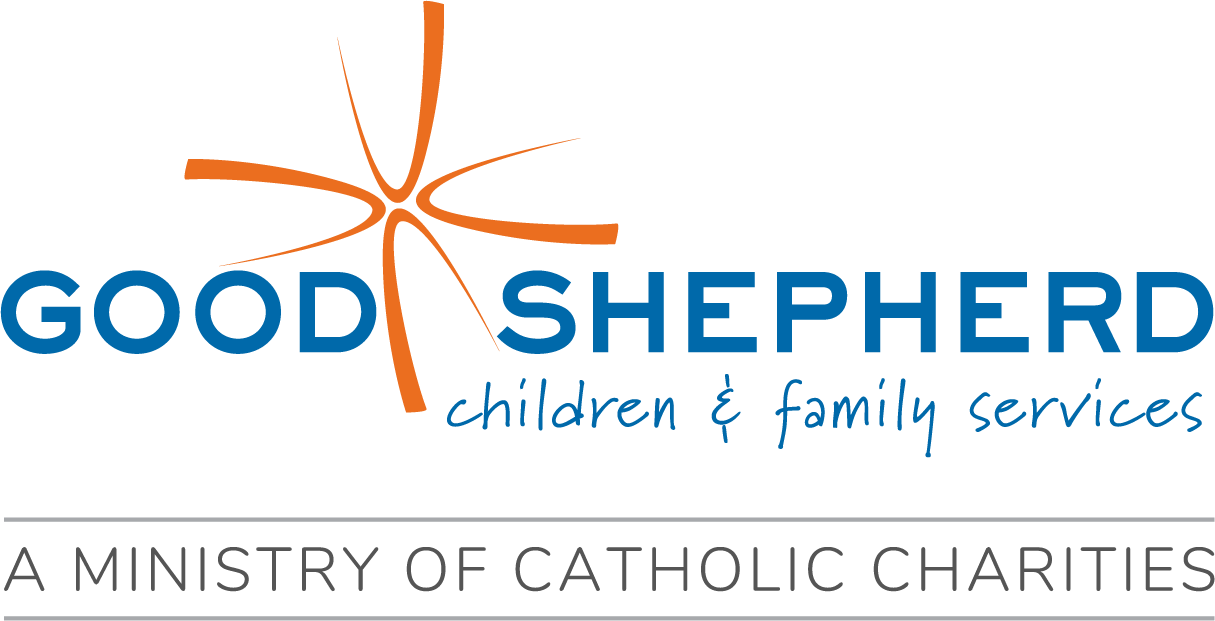By Amanda Carriker, Family Development Specialist
Good Shepherd Children and Family Services is piloting a new program called Treatment Foster Care (TFC). TFC is designed for those youth with behaviors that require them to be staffed above a Level A or Level B home. These kids have been through some of the toughest circumstances. They need help to regulate their emotions, balance their behaviors, and express themselves respectfully. While these kids are typically preparing to step-out of a residential facility, research shows that kids show fewer patterns of returning to institutional care and remain more successful in the community.
Treatment Foster Parents go through thirty-five hours of additional training beyond STARS before accepting placement. Once a Treatment Foster Parent takes a placement, there are additional supports put into place such beyond the child’s case manager and the family’s licensing worker. These additional supports include weekly visits from a Family Specialist, (a licensed therapist), who will work with the family and the child to implement effective strategies in the home. Additionally, a nurse for medical questions, an educational advocate and 24 hour phone access crisis support are available.
Good Shepherd is looking for those interested in making a difference in the life of at-risk youth by becoming a Treatment Foster Parent.
Meet Eunice
One parent who has made the commitment is Eunice Sparks. Eunice has been a foster parent for over two years and currently has placement of two girls. While these girls are not treatment level youth, Eunice has been utilizing what she has learned in the training in her home. Eunice will take her first treatment level placement once one of her current placement transitions to permanency. Eunice agreed to share more about treatment foster care from her perspective:
- How would you explain treatment foster care?
“Treatment foster care in taking care of higher needs children.”
- What was your motivation in becoming a treatment foster parent?
“There is a need to take a kid in who needs to be seen as more than their behaviors. I don’t judge them and I give them an opportunity to show me who they are. Every child, no matter their behaviors or background, deserves that.”
- What expectations does the agency have of you as a treatment foster parent?
“Beyond the regular foster parent responsibilities, there is more paperwork that you have to stay on top of. This isn’t busy work, it really does help make a difference in the kids and the home. I didn’t believe it at first, but I stuck with it and it has. You also have more support, which is so nice. Oh, and training, lots of training!”
- What was the training like?
“It was interesting! I learned more hands on guidance. I also learned additional skills and troubleshooting for when your go-to stuff isn’t working.”
- What advice would you give to another foster parent who is considering becoming a treatment foster parent?
“I would say to make sure that it is what you want to do. Understand that when a child comes into your home they have no idea what your home in ran like and they are scared. Be fully dedicated and consistent because these kids are used to being given up on. You are affecting their lives, so make sure it is what you want to do. This is something bigger than you, and if you do not feel you can change the way you have parented in the past or you aren’t open to suggestions from the professionals, this probably isn’t for you. These kids deserve the best, because they are used to not getting what they need or deserve.”
- What qualities does a treatment foster parent need?
“Patience, understanding, excellent listener, willing to make changes, organized and an awareness that what has worked in the past may not work! Think outside the box and be willing to talk to the kid. Open communication with the kid and the members of the team.”
You could make a difference in the life of an at-risk child.
If becoming a treatment foster parent is something you would like to learn more information about, please contact Amanda Carriker at 314-854-5768 or acarriker@ccstl.org. Good Shepherd is also hosting weekly info meetings on treatment foster care every Wednesday at the Good Shepherd office from 4:30-5:30PM.

 Get Help Now
Get Help Now








